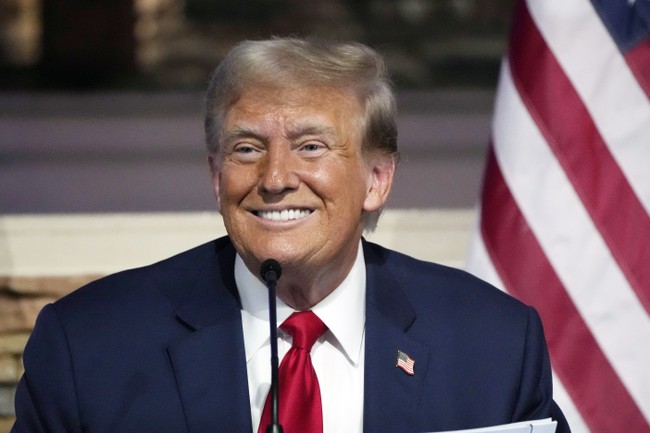
In a move that has to have Fulton County District Attorney Fani Willis rending her hair and gnashing her teeth, Georgia Superior Court Judge Scott McAfee has quashed three counts the prosecutor’s office filed against former President Donald Trump’s co-defendants in the alleged election interference case.
Judge Scott McAfee granted a motion from some of Trump’s co-defendants to quash three counts in the sprawling racketeering indictment brought by Fulton County District Attorney Fani Willis (D), finding they “lie beyond this State’s jurisdiction.”
The ruling also hands the former president a sizeable victory, as he faced two of the charges in question.
“President Trump and his legal team in Georgia have prevailed once again,” Steve Sadow, Trump’s lead defense attorney in the case, said in a statement.
The former president and a slew of his allies are accused of attempting to subvert Georgia’s election results to keep Trump in the White House after he lost the 2020 presidential election. Trump has pleaded not guilty.
Though the ruling was as to his co-defendants — the case against Trump is currently on hold while the issue regarding the recusal of Fani Willis is fought in the Georgia appellate courts — the practical effect of the ruling is that it removes two more counts from the original 13 charged against him, whittling the total down to eight. (Three counts against Trump were quashed in March.)
The former president isn’t out of the woods on this particular lawfare case yet, obviously, but there is doubtlessly some slapping of backs, grinning, and glad-handing in the Trump campaign headquarters Thursday. Every little bit helps, as the saying goes, and if this case is still a problem, at least it’s a smaller one.
See Related: Sportscaster Stephen A. Smith Brings Some Hard Truth to Dems—Trump Trial Just Shows They’re ‘Scared’
Alvin Bragg’s Office Urges Judge Juan Merchan to Uphold Donald Trump’s Business Records Conviction
While the judge declined to dismiss several other counts, he noted that the recent Supreme Court ruling on presidential immunity has not yet been applied to the case:
The judge meanwhile declined Trump’s co-defendants’ requests to drop additional counts, including the racketeering charge at the center of the indictment.
McAfee did, however, preview that the Supreme Court’s decision carving out broad presidential immunity will “likely affect the allegations” underpinning that central charge.
“However, unlike the many other challenges raised by the Defendants, the impact of Presidential immunity has not been fully briefed or argued by the parties, and this order does not reach that issue,” McAfee wrote in a footnote.
While I’m not an attorney, nor do I play one on television, it seems like these various cases will present a rather large headache should Donald Trump win a second term in November. What happens then? Do the cases still go to trial, dragging a sitting U.S. president into the courtroom? Will the various prosecutors and district attorneys throw up their hands and give the whole thing up as a bad deal?
Will Trump preemptively pardon himself? Can a president pardon himself? That’s far from clear, although wouldn’t this make for an interesting test case?
Of the options, it seems likely that the various prosecutors and district attorneys involved will keep pushing this. Caught in the throes of Trump Derangement Syndrome, they sure seem convinced of their own righteousness, and just because a cause is a bad cause doesn’t mean people won’t continue to fight for it. If Trump wins, he may well have to deal with a demand for him to appear in court. If he loses — and we can hope he won’t — then expect these purveyors of lawfare to ratchet everything up to the next level.

